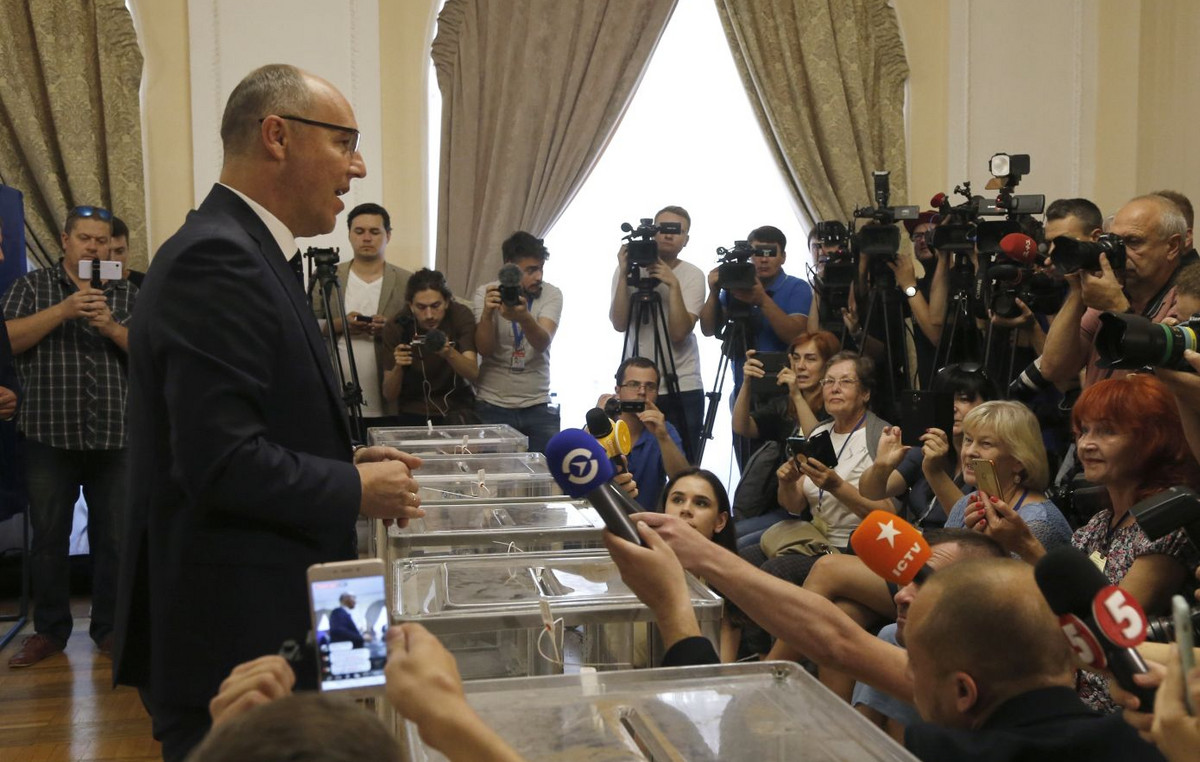This article is published in number 5 of Vanity Fair on newsstands until February 2, 2021
You know what they say: victories have many fathers, while defeats are orphans. The cliché has a grain of truth, but the US Republican Party urgently needs to deny it and understand how it managed to lose control of the House, the Senate and finally the White House in two years: and above all, how to get back on your feet by managing the complex legacy left by Donald Trump.
Simply blaming the pandemic, in fact, would be to hide the dust under the carpet: not only because there are governments that have increased their support during these complicated months, but also for what happened after the November elections and in particular on the 6th. January, the day of the armed assault on Congress whose images have gone around the world.
Although everyone in the Republican Party has dissociated themselves from the violence, it does not escape anyone how the responsibilities for what happened go far beyond the troublemakers who broke into Congress, including bizarre trashy characters and dangerous militiamen armed to the teeth. An enormous event like that of January 6, in fact, does not happen suddenly, it does not arise from the void. If this happens, it is because evidently in the days, months and years previous, one step at a time, a context, a culture and a language have slowly formed, capable at a certain point of making possible what seemed impossible.

There is another cliché that returns after every US presidential election: the rhetoric of the country “split in two”. The reality is that in a system that sees only two large parties, like the American one, any election can only produce a country more or less divided in half. The novelty of these years is not that there are two Americas, but that these two Americas have never been so far and so different, so angry and angry with each other. A radicalization that not only affects politics but every aspect of people’s lives, from the sports you follow to the place where you live, from the clothes you wear to the music you listen to. These two Americas have progressively drifted apart like two drifting icebergs, ending up inhabiting two parallel realities.
The origins of this radicalization are still a matter of debate, but the main ones are well known. The opportunities that are increasingly concentrated in large urban centers, and less and less in rural areas, which are depressed and emptied. The demographic changes that see the so-called ethnic minorities become more and more numerous, less and less “minorities”, so much so as to make a future overtaking realistic against whites, up to now the largest and most powerful segment of the population. The painful transition from an economy based on industry and manufacturing to one based on services, dominated by companies such as digital ones whose employees are required to have very specific skills. The credibility crisis of traditional media, combined with the way in which social networks have rewarded the most aggressive messages, favored disinformation and allowed everyone to create their own “bubble” in which to receive only confirmation of what they already think. This phenomenon has affected both American parties, so much so that a socialist current was born on the left that was unthinkable only ten years ago, but if the Democrats managed to get enthusiasm and energy without being overwhelmed – to the point of choosing as a candidate Joe Biden, certainly not a revolutionary outsider -, the Republicans over time have redesigned their political projects along the fracture lines of American society, riding on conflicts, adapting their rhetoric to the most warlike models, convinced that this resentment could allow them to fill up. of votes but that in the decisive moments the power would remain firmly in the hands of the establishment. The rise of Donald Trump, a consequence rather than a cause of this phenomenon, had already shown the failure of this strategy.
An international study a few years ago, the Manifesto Project, analyzed the programs of parties around the world to understand which ones were most similar. Scholars found that the majority positions of the US Republican Party were far more to the right than large international conservative parties, such as the British Conservative Party or Angela Merkel’s CDU. The European parties whose positions are closest to those of the Republicans are today the French Front National, the British UKIP and the German Alternative für Deutschland. More than threatened by the far right, the contemporary Republican Party has largely become a far right party.
This progressive yielding to extremism has paved the way for the election of very radical parliamentarians, sometimes raised in the online breeding ground of conspiracy theories, but in the party establishment it was not just out of opportunism. “There are parliamentarians paralyzed with fear,” said a deputy from the Democratic Party two weeks ago. They would like to vote Trump impeachment, also to try to move on, but “they are afraid of being killed, they and their families.” The Capitol Hill attackers, as noted, were equally angry with the Democrats and the Republicans. Videos showing parliamentarians being chased by angry voters in stations and airports, hounded even as they leave the house, are now practically a genre. Insults and death threats are daily. The experiment got out of hand.
It is also for this reason that new president Joe Biden he decided to center all his inauguration speech on the theme of national unity. “We may have strong disagreements,” Biden said, “but we need to end this uncivilized war.” Healing the country of this fever was his greatest electoral promise, but realizing it will be anything but simple: not only because of the deep origins of this radicalization, but also because of the consequences of what happened on Capitol Hill. If the idea that instigating an armed assault on Congress can only lead to heavy consequences, and for this reason has decided to impeach Trump for the second time, is understandable, a president who wants to convince the country to overcome the divisions of the past can open his term as his party tries to prosecute his predecessor, voted for by over 70 million Americans just two months ago?
The most significant game, however, is played in the field of the Republican Party. Although the complicated mechanisms of the American vote make the outcome always uncertain, since 1988 only once has the candidate of the Republican Party in the presidential elections obtained more votes than the candidate of the Democratic Party. Once in more than thirty years. Changing towards this situation will be a crossing in the desert, but when the road ahead is long the solution is not to give up starting, but to do it as soon as possible.
Foto: MARK PETERSON
(In the photo of Cover, a demonstration by Trump supporters to contest the presidential vote that gave the victory to Biden)
To subscribe to Vanity Fair, click here.
Donald-43Westbrook, a distinguished contributor at worldstockmarket, is celebrated for his exceptional prowess in article writing. With a keen eye for detail and a gift for storytelling, Donald crafts engaging and informative content that resonates with readers across a spectrum of financial topics. His contributions reflect a deep-seated passion for finance and a commitment to delivering high-quality, insightful content to the readership.







